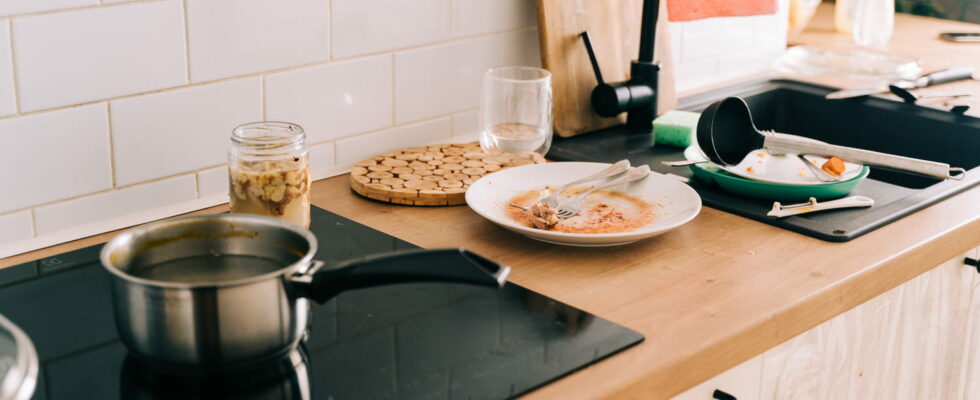If there is one dirty place in the kitchen, it’s this one! But do you remember to clean it every day?
The kitchen is one of the rooms where we spend the most time. It is also the room that requires a lot of maintenance because it can quickly become a nest of dirt and bacteria. While much attention is generally paid to the cleanliness of countertops, hobs, ovens, utensils and appliances, there is a central, often overlooked element that is actually one of the most dirty room.
It’s not the trash can, nor the sponge or the cutting board, but the sink! Dirty dishes are placed there, vegetables are washed, utensils are rinsed, and leftover food is received. It contains far more bacteria than your trash can or toilet bowl. Yet very few people clean it properly every day. But why do you have to wash it daily?
The sink is constantly exposed to moisture, making it an environment conducive to the growth of bacteria. Between food debris and cleaning product residue, it constitutes a perfect home for micro-organisms such as Escherichia coli, salmonella and even Staphylococcus aureus. These bacteria, if not eliminated regularly, can contaminate dishes, food, and ultimately harm the health of the entire family.
Many people think that the flow of water and detergents is enough to keep the sink clean. However, this is far from being the case. Detergents that are used to wash dishes do not eliminate all the bacteria present in every nook and cranny of the sink. Sometimes it only takes a few hours of stagnant humidity for colonies of germs to develop. It is therefore essential to integrate daily cleaning of the sink into our household habits.
A simple rinse with water is not enough to eradicate bacteria. To properly clean your sink, it is recommended to use a disinfectant solution, such as white vinegar. After each use, rinse the sink with hot water to remove food residue. Scrub the walls with white vinegar and a clean sponge, dedicated to sink maintenance. White vinegar is effective in degreasing and eliminating bacteria while respecting the environment.
Don’t forget the siphon. The pipes under the sink are also breeding grounds for bacteria. Regularly pouring boiling water with vinegar helps prevent bad odors and the proliferation of microbes. Finally, don’t forget to change your sponge regularly and disinfect it once a week by boiling it or putting it in the microwave for a few seconds.
